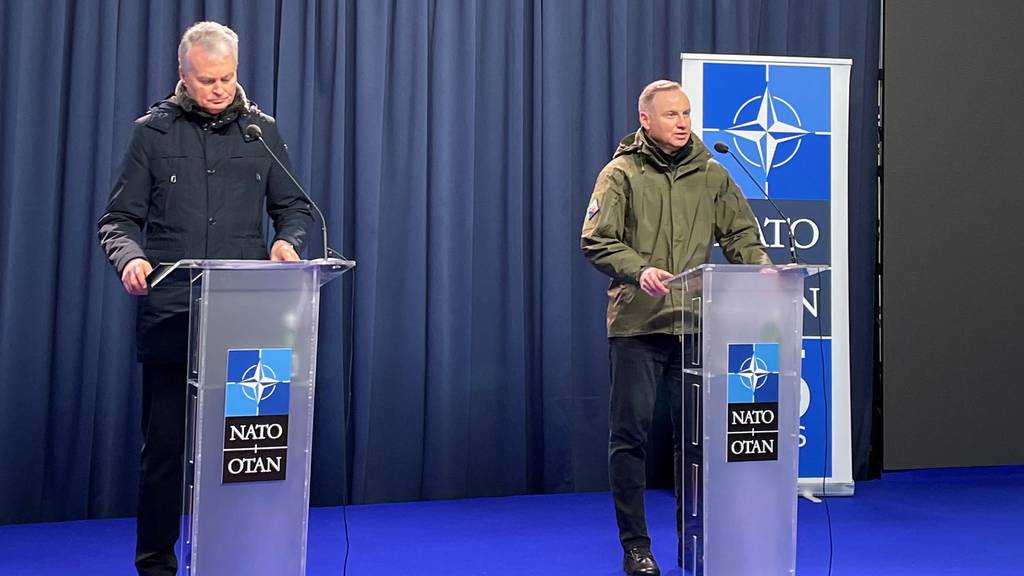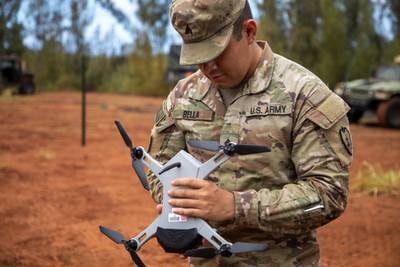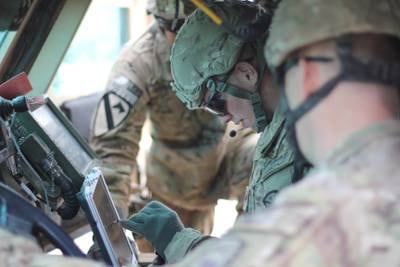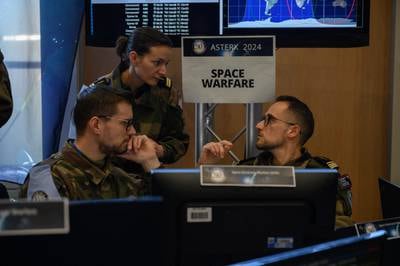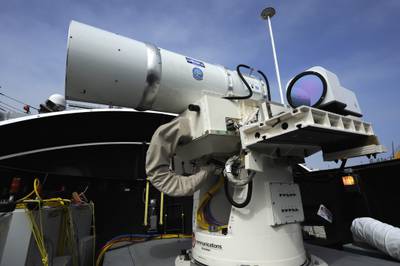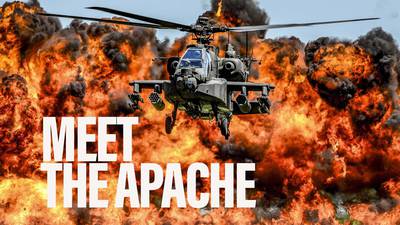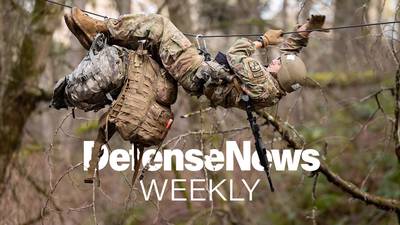KORZENIEWO, Poland — Poland’s president says the government stands ready to defend Lithuanian territory in the eventuality of an attack, following comments made by Lithuania’s prime minister implying Polish laws may prevent it from protecting the Baltic state.
The presidents of Poland and Lithuania made a surprise appearance here on the last day of a waterway crossing at the Vistula River, which took place as part of the Polish-led Dragon exercise. Both countries’ soldiers were involved in the training.
“Today, I am talking about collective defense. We are ready, and rest assured that Lithuania can count on us if there was such a need, [that] Polish troops would stand shoulder to shoulder with Lithuanian forces to defend every inch of territory against an enemy attack,” Polish President Andrzej Duda told his Lithuanian counterpart during a news conference. “And that means not only Polish territory but also Lithuanian and the territory of the other Baltic states, if necessary.”
Duda’s reassurances were made amid a broader debate that erupted in Lithuania in recent days, following a cryptic statement made by Lithuanian Prime Minister Ingrida Šimonyte. In an interview with a local television program, the prime minister said she had knowledge of existing legal restrictions in Poland that “do not provide for the obligation” to deploy troops abroad even during a war, which would also apply if Lithuania came under attack.
She did not clarify which specific legal acts or limitations this was in reference to.
According to the state-run media organization LRT, Lithuanian President Gitanas Nausėda called Šimonyte’s words a “misunderstanding.”
“Lithuania and Poland share the same understanding of security threats, and we will continue to work together to strengthen the security of our countries and the entire NATO eastern flank,” Nauseda told reporters during the March 5 news conference here.
During the Vilnius Security Forum held Feb. 23, Lt. Gen. Ben Hodges, a former commander of U.S. Army Europe, reminded attendees that NATO’s Article 5 says an attack on a member state is considered an attack on the alliance, but that each allied country should also be ready to defend itself.
Several European nations are concerned that Russia’s ambitions will spread beyond Ukraine, upon which Moscow launched a full-scale invasion in February 2022.
Among the organizations that took part in the Polish leg of the exercise was NATO’s Very High Readiness Joint Task Force, whose lead is being assumed by the U.K. this year.
In an interview with Defense News, Brig. Gen. Guy Foden, commander of the force, said very high readiness entails that troops are “ready to deploy within [a matter] of days, but depending on where you’re going it can take shorter or longer periods of time.”
Elisabeth Gosselin-Malo is a Europe correspondent for Defense News. She covers a wide range of topics related to military procurement and international security, and specializes in reporting on the aviation sector. She is based in Milan, Italy.
